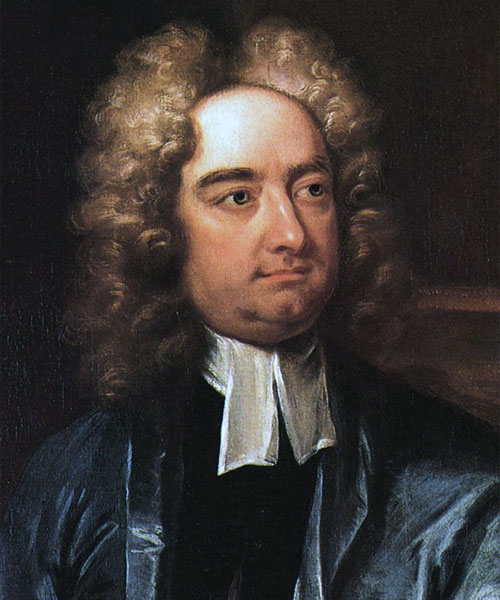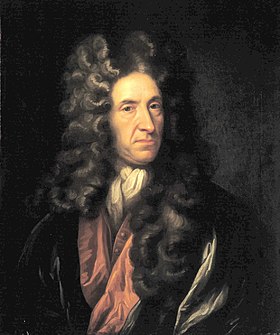| Авторские образовательные материалы по чтению для учащихся 7 класса |
| Содержание - Иностранные языки | |||||||||||||||||||||||||||||||||||||||||||||||||||||||||||||||||||||||||||||||||||||||||||||||||||||||||||||||||||||||||||||||||||||||||||||||||||||||||||||||||||||||||||||||||||||||||||||||||||||||||||||||||||||||||||
|
Мазилкина Наталья Николаевна, учитель английского языка, МБОУ СШ № 41, город Ульяновск. Дата публикации: 07.06.2018 АВТОРСКИЕ ОБРАЗОВАТЕЛЬНЫЕ МАТЕРИАЛЫ ПО ЧТЕНИЮ ДЛЯ УЧАЩИХСЯ 7 КЛАССА В основу отбора и подачи данного материала положены принципы лингвострановедения, т. е. такого направления в методике преподавания иностранных языков, когда изучение иностранного языка проводится одновременно с изучением культуры, причём культура преподносится так, как она представлена в фоновых знаниях её носителей, в данном случае англичан. Задачи разработки: 1.Расширить кругозор учащихся, знания лингвострановедческого характера на билингвальной основе в диалоге культур. 2.Способствовать развитию творческого мышления и познавательной активности семиклассников. Данная разработка направлена на расширение базовой программы предмета "Иностранный язык". Это осуществляется за счет введения и активизации новой лексики в большем объеме и развития коммуникативных умений и навыков во всех видах речевой деятельности.
Jonathan Swift
Read the text about the famous English writer and do the tasks. Write down all new words in your dictionaries.
New words:
1.To be ashamed 2.To achieve 3.To respect 4.Mind 5.Power 6.To graduate from 7.An employer 8.To depend on 9.Theology 10.A pamphlet 11.To value 12.A quality 13.Wealth 14.Mourning
Jonathan Swift, the famous English writer, was born in Dublin in 1667. His father had died by that time. It was difficult for his mother to grow Jonathan. Fortunately, they had rich relatives who helped them time to time. The boy grew proud and was ashamed of that help. From that period of his life, he decided to achieve fame, honor, and respect with the help of his own mind, power and talent. He graduated from Dublin University then he was working as a secretary to a former diplomat for 10 years. Jonathan had a chance to read a lot there, to see interesting people but he wasn’t happy because of a great difference between him and his employer. He married his student Ester Johns and loved her all his life. Swift continued to dream about his independent status in the society. He passed exams at the degree of a Master of theology in 1692 and then worked as a secretary to the Ireland’s governor. Soon he was sent to London and worked there as a political journalist. He published his pamphlets and satirical novels. Swift attacked the colonial policy of England in Ireland. He wanted the Irish people to be happy and hated all kinds of oppression – political, economic and religious. Later Jonathan Swift became an editor of the governor’s newspaper. Swift was rather dangerous for a royal society and he wanted to leave London. He got a job of an abbot in Dublin Cathedral and became the second person of the Irish church. Swift achieved such status thanks to his talent. He valued only sincere qualities not noticing the titles and wealth. He continued writing attacking corruption in religious and education, defending his native Ireland, which had become an English colony. Swift suggested developing their own industry, not buying English goods. His pamphlets made a great political effect and became rather useful in the Irish national movement’s history. Swift became a national hero. When he returned to Dublin after a long absence, a chime met him. The English Prime Minister wanted to arrest him but it was impossible because people guarded his house, escorting him across the country. Jonathan Swift was called “The uncrowned king of Ireland”. He formed an organization to develop Irish industry and gave his own money for it. He wrote many pamphlets claiming the Irish oppressor. Jonathan Swift died in 1745 and it was the day of mourning for all Irish people. Just for them he had done a lot. His “Gulliver’s Travels” is known all over the world. Russian people read this book with great pleasure.
1. From his childhood, Jonathan wanted to achieve honor and respect with his own mind, power and talent. 2. He studied at Cambridge University. 3. Swift wrote satirical novels and pamphlets. 4. He valued titles and wealth. 5. Swift became the second person of the Irish church. 6. All his life he defended Irish people, dreaming Ireland to be free from England.
1. When and where was Jonathan born? 2. Did their rich relatives help them? 3. What did the boy feel? 4. What was his aim? 5. Where did he study? 6. Whom did he marry? 7. Where did he work as a political journalist? 8. What did he value in people? 9. Jonathan Swift became the second person of the Irish church, didn’t he? 10. What did he suggest for defending his native Ireland? 11. How did the Irish people meet him / call him? 12. What famous book did he write in 1726? 13. Is it known all over the world?
1. Работодатель 2. Качество 3. Ум 4. Уважение 5. Достигать 6. Ценить 7. Богатство 8. Богословие
Power To be ashamed of Qualities To depend on Mourning
1. Little Jonathan … … … his rich relatives’ help. 2. He valued only sincere … . 3. This man achieved such status thanks to his mind, … and talent. 4. He didn’t want … … … his relatives. 5. The day of his death was the day of … all over Ireland.
Daniel Defoe
Read the text about the famous English writer and fill in the gaps. Write down all new words in your dictionaries.
New words:
1.to fail 2.throughout 3.comparative 4.a custom 5.various 6.to separate 7.to survive 8.blooming 9.to overcome 10.an exposure 11.a pillory 12.to cheer 13.to review 14.folly 15.to deride 16. superstition
Daniel Defoe… … in London in 1660. When he was a schoolboy, he began to write stories. After he … school he began to write articles for newspapers. His father was a well-to-do butcher. Daniel entered into the same trade but he failed. He was more interested in politics than in business. He did some commercial travelling in Spain, France, Holland and Italy and took many business trips throughout large sections of England. While travelling he wrote interesting notes on the comparative manners, customs and ways of life in the various European countries he visited. He wrote a lot of pamphlets, contained an exposure of the aristocracy and tyranny of the church. When his pamphlet about his attitude to Tories was published, the House of Commons ordered it to be burned. Defoe was arrested and made to stand in the pillory in the public square but people took his side and cheered him as he stood in the pillory. Shut up in prison Defoe continued writing and started in 1704 the publication of the political and literary magazine The Review. He criticized the manners and customs of high society and derided folly and superstitions. He was against wars and for peace among nations. In 1719 at the age of 58 Defoe … the novel “Robinson Crusoe”. He told the true … of a Swedish sailor who lived on an island for 4 years where there were no other people. Robinson was separated from the society, he tried to survive on the island and turn it into a blooming plantation. Nothing could destroy Robinson’s activity and energy though he … a lot of difficulties on that island. He struggled hard against nature. Defoe glorified human labour, which saved Robinson from moral degradation and despair, which was a source of pride and happiness. “Robinson Crusoe” is an adventure … . While reading we see danger, ruin of the man’s hopes, overcoming of difficulties and the victory at last. This novel … in many European languages.
Oryplil, imbologn, mutcos, sinuiprestto, svuaori,eomvoerc, eexrpuos.
Lewis Carroll / / Charles Lutwidge Dodson
Look and listen to a story about the famous English writer, a classic of the world literature for children. Write down all new words in your dictionaries.
New words:
1. a clergyman 2. to perform 3. slender 4. handsome 5. curling 6. private 7. a department 8. violent
The date and place of birth: 27. 01. 1832 // England;
His family: the son of a clergyman // 7 sisters and 3 brothers;
Childhood: writing poetry // performing magic tricks and marionette shows;
Appearance: six foot tall, slender, handsome with curling hair and green eyes;
Education: at home // a small private school // 1845 - Rugby school // 1851 - Oxford University (finished 2 departments: Mathematical //Classical languages); Profession: a lecturer in Mathematics at Oxford University (Christ College) for 25 years;
Interests: was fond of taking photos //was writing short stories and poetry;
His own family and friends: had no family // at 30 became close friends with Henry Liddell’s family (his wife and 3 daughters: Alice, Ina, Edith);
At his friends’ place: told Alice interesting stories about the adventures of a little girl in Wonderland //she asked him in a few years to write those stories down and published;
As an English writer: took the pen-name of Lewis Carroll // 1865 – “Alice’s adventures in Wonderland” // 1872 – “ Through the Looking Glass and What Alice Found There” // many mathematical papers;
Travelling: 1867 – visited Russia (Moscow, St. Petersburg, Nizhniy Novgorod, Sergiev Posad);
The date of death: suddenly of violent pneumonia in January 14, 1898;
Choose the right variant: 1. Lewis Carroll was a)the son of a lawyer. b)the son of a doctor. c)the son of a clergyman. 2. In his childhood Charles liked а) to write poems. b) to go in for sports. c) to perform magic tricks and marionette shows. 3. He got education a)at Oxford. b)at Cambridge. c)at Aberdeen. 4. Charles was fond of a) taking photos. b) playing musical instruments. c) collecting different things. 5.He became close friends with a) Henry Liddell’s family. b) teacher of Maths at Oxford University. c) his father’s friends. 6. One of Henry Liddell’s daughters asked him to write down his story. It was a)Edith. b)Alice. c)Ina. 7. Charles Lutwidge Dodgson took the pen-name because he a) didn’t like his name. b) was asked about it. c) was ordained. 8. His “Alice in Wonderland” a)had a phenomenal success. b)was a failure. c)was his fifth book for children.
Translate these sentences from Russian into English: 1. Чарльз был высокий и красивый! 2. У него были вьющиеся волосы. 3. Он был сыном священника 4. В детстве он любил устраивать представления. 5. Он учился в частной школе, затем на математическом отделении. 6. Он умер от тяжёлой скоротечной пневмонии.
|
|||||||||||||||||||||||||||||||||||||||||||||||||||||||||||||||||||||||||||||||||||||||||||||||||||||||||||||||||||||||||||||||||||||||||||||||||||||||||||||||||||||||||||||||||||||||||||||||||||||||||||||||||||||||||||
Самое популярное
- Тренинговое занятие для педагогов «Снятие эмоционального и мышечного напряжения».
- Всероссийская научно-практическая конференция «Парламентский час в образовательном учреждении»
- Рабочая программа и календарно-тематическое планирование по окружающему миру 2 класс УМК "Школа России".
- Положение о публикации методических материалов
- Конспект занятия в первой младшей группе по развитию речи на тему: «В магазине «Игрушки».



